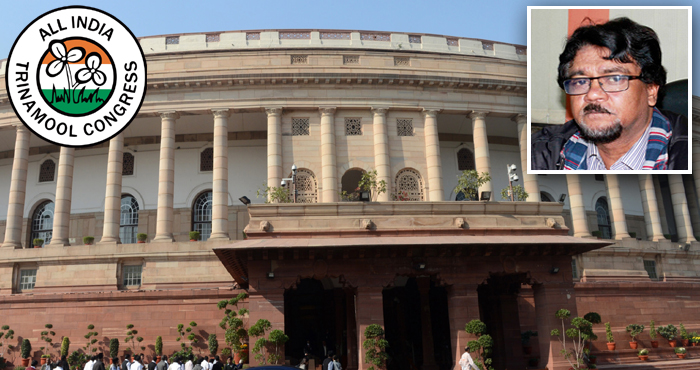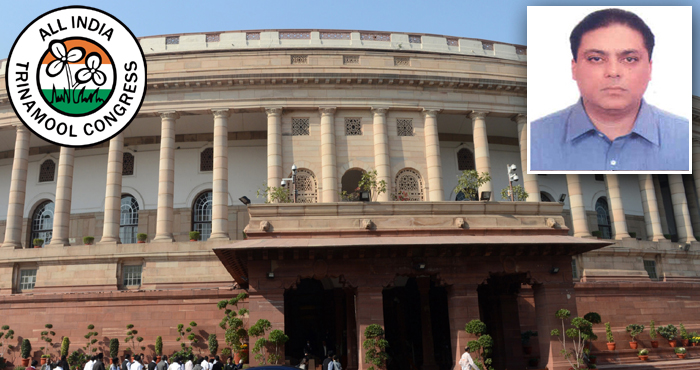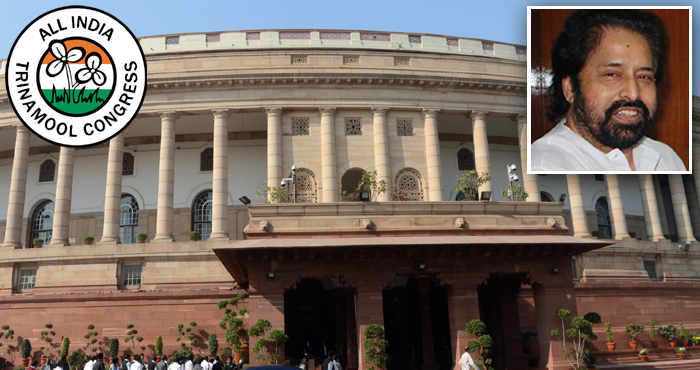We are discussing the Indian Medical Council (Amendment) Bill together with the Dental Council (Amendment) Bill, 2016. We have seen this important issue received contradictory judgments from the learned Supreme Court. So, many of us are confused as to what is the feeling of the Hon’ble learned court regarding this matter. Even today this is very important because it deals with the life of the people. Doctors and interns, when they qualify and come out as specialised professionals, take care of our health system. There is no doubt that we need merit infusion into the medical fraternity.
A doctor in one hospital may disagree from the treatment modality from another hospital. For example, our Hon’ble leader of the party Shri Sudip Bandyopadhyay suffered acute stomach encargos and was admitted in a renowned hospital of New Delhi one year back. When I went to see him, I told him that he is suffering from stones in the gall bladder. But the doctor said it was gastritis and will subside. But his gall bladder ruptured, the stone was thrown all over his peritoneal cavity, he got septicemia and he was on the verge of death when he was flown to Calcutta and his life was saved. So within a span of 2-3 days, in two specialised hospitals, there were two specialised doctors – one was sending him to death the other one brought him to life. So, we agree that we have to have quality doctors and quality medical education for people not only like people of Sudip Bandyopadhyay ji, but for every common man of this country who cannot afford private hospitals and who go to the government set ups, the public hospitals.
Now we are discussing about the examination which the students have to undertake when they go to study the undergraduate medical course MBBS or the post-graduate course of MD. We are debating whether these examinations have to be regional, have to be done through the state boards or should they conducted centrally through the national eligibility entrance test (NEET).
The first point that I would like to point out here, Sir, that though it is incumbent upon the State authority to hold an examination, this is going to be legislated and we have certain recommendations like the time of the examination. If the exam is held simultaneously with a board examination going on in a State of the country the students are going to suffer. The language of the examination is going to be Hindi, English and other languages. I demand that all the languages in the 8th Schedule of our Constitution be considered. The students who are preparing for the examination in the remotest areas of our country – whether it is Tamil, Telugu, Marathi or Bengali – do not get the opportunity to study the same syllabus as the CBSE students. Only 18 percent of the students in this country are getting the opportunity of studying in English and the rest of studying in their mother tongue or in their regional languages.
So, this is very important that their pride is taken into consideration, the question papers are made so that they can understand in their own language and also about the discrepancy in the syllabus because there is nearly 30 per cent difference between the West Bengal Board and the CBSE. In these competitive examinations half a mark differentiates 50 students from getting a chance. So if the standard is of the CBSE syllabus then many of our vernacular, many of our regional language students are going to be deprived, which is going to be gross injustice on them. This will have to be decided before we start this examination.
So, as we have suggested before, let it be done in phases. Let the syllabus be stabilised throughout the country. When all students study the same syllabus and then they appear for the examination they will not be deprived. So that the economically backward students are not deprived we have to have strict vigilance and monitoring over the private set ups that give tuitions to the rich students for admission straight away into the private colleges. It is a welcome move that a common entrance test is going to be held for private and public colleges.
I would also like to cite the example of Bengal. While conducting these exams, we have multiple centers all over the state in every districts covering nearly all subdivisions so that the can easily sit for the exam at centers closer to their homes. What is the proposal of the government regarding holding these exams? If they are only held in the major cities then who is going to pay for the travel allowance and who is going to take care of the students when they come, considering the present state of affairs in the country when the little girls are raped and murdered, as my dear friend Supriya Sule was speaking about in the morning regarding incidents in Maharashtra and Haryana. So how can we protect the girl children when they are going to sit for the exams far away? You have to consider that every subdivision has to have more than one center where they can go and appear for this examination.
The other thing that we want to emphasis is the time of examination. All the States do not conduct their 10+2 examinations at the same time. So the examination will have to be held at such a time when 10+2 examinations are over all across the country and the students can get about 2-3 months to prepare. It would rather be easier if medical admission takes place through the cut-off marks of 10+2 level throughout the country giving respect to the regional languages.
And we also agree with the Hon’ble member when he was speaking about the domicile. The domicile status has to be addressed. We have 85 per cent seats for domicile and 15 per cent common seats. We don’t want this common test to eat into our 85 percent also.
Along with these suggestions I like to add that the health policy of the country is lopsided. The health structure should be such that it is bottom heavy where we have more rural hospitals, where we have more primary healthcare centers where the common man can reach easily within his ability and get checked for common diseases and only get referred to tertiary centers when difficult diseases and operative procedures are coming up. This will ensure that tertiary healthcare centers of the teaching hospitals or referral centers like the All India Institute of Medical Science here get only the difficult cases.
But as Hon’ble members present in this august House will agree with me every time they go to their constituency, constituents come with the request of getting admitted into AIIMS because the common man is not getting proper treatment in his State or regional hospital. Such is the discrepancy of knowledge in the medical fraternity. It is sad that only 1.6 percent of the budget is allocated for the medical sector. It is true that if we follow the World Health Organisation of ratio between patient and doctor, India is lagging far behind developed countries. So if we call ourselves a developed nation, if we are planning towards better days ahead with lot of innovation and ‘Make in India’, we also have to guarantee the well-being of our nation.
Hon’ble member was here speaking about dialysis. India is going to become the diabetic capital of the world. And diabetes leads to kidney failure, it leads to cardiac failure, it leads to blindness. So if the government is not agreeable to increase the budgetary allowance how can we prevent our people from going into renal failure or cardiac failure? It is our lopsided policy; it is our erroneous health policy.
Students have to sit at home and go on reading multiple choice questions. These MCQS come in books and students spend hours mugging those questions to sit for these exams. I don’t know who did away with the system in which students after passing the final MBBS examination are incorporated as junior house staff for one year, senior house staff for one year then residence. The American system has this system in which after qualifying the under graduate exam they work as residents in the hospitals and learn things that they will have to do all their lives – saving lives, doing operations. When students are sitting at home for the examination, mugging the multiple choice questions they are not using their acumen, they are not using their heads and they are not on hands-on training.
God forbid, if any Hon’ble member gets a heart attack here, it would take a doctor like me one second to decide and give him cardio-pulmonary resuscitation here on the floor of the House. But today, I doubt whether 99% of the students who are qualifying in the different medical colleges after the undergraduate course has even ever heard about cardio-pulmonary resuscitation, whether they have heard of Heimlich Procedure being given when a food particle gets stuck in the wind pipe. So they don’t work, they only sit at home and are reading these books and this is the policy error of the Government in which they are allowing students to just go on reading books. Medical practice is not reading books, medical practice is working with the patients, in the hospitals for 24 hours, doing the things that senior doctors teach, and the house staff-ship has to be brought back because that coaches the students to qualify for the post graduate life and degree.
If I am looking inside a dark room, I cannot see anything; I need a torch to see. Similarly, I need a retinoscope to see the retina, I need a cath lab to do angiography and angioplasty but here, we don’t have infrastructure in the country. Only increasing the stress on the students by making them appear for tests after tests is not going to improve the health delivery system of the country. We have to improve the infrastructure also but that is not being taken care of by this government. If the house job is brought back, students after qualifying the undergraduate final MBBS exam can get into the subject of their choice. Suppose they do geno-surgery, then the allied subjects should be made available to them and if he does not get qualification enough he can join other branches of surgery like thoracic surgery, cardio-thoracic surgery, head neck surgery or even gynecology. This way an undergraduate student will work for 2 years and then for another 3 years in residential and then qualify as a post-graduate doctor. But the policy paralysis, the erroneous policy taken up by the government is not thinking in these terms.
They are trying to expose the students for the final MBBS examination, then the exit examination and then the entrance examination. Isn’t it ridiculous that a single child has to sit for three examinations just to quality to get into post graduate life? He can do the house job and from there straight away according to his choice and marks he gets, he automatically gets into that branch as is the case in the United States of America.
You are trying to have a single examination, but who is going to hold that examination. The Medical Council of India? Which is riddled with irregularities and malpractices? Which goes and cancels the number of seats for undergraduates in state hospitals because they are getting money and five star facilities in the private hospitals? How can the Medical Council of India be entrusted to hold the examination which is the life and profession not only of lakhs of students here who are aspiring to become medical doctors but also us because in our old age we will have to depend on those doctors to take care of our health.
So Medical Council of India cannot be given the charge to hold these examinations, that has to be a different body, taking care of all the factors like regional languages, the number of examination centers, the time of holding the examination, domicile and uniform syllabus for the whole country.
In our State within a period of four and a half years our infant mortality rate has come down, our maternal mortality rate has come down. Our institutional delivery has become 90 percent. The footfall in a small hospital in my constituency, a public hospital of Barasat, every month is one lakh where hardly a thousand people used to go earlier. That is because of the correct health policy taken by the Hon’ble Chief Minister Smt Mamata Banerjee. She is giving free treatment to patients there, free operation, free pacemaker, free cardiothoracic surgery, free delivery to women. The women are being brought from their homes in State ambulance after check up and after delivery they are being sent home in those ambulances. They are also being given other supplementary help.
So the policy has to be good to have an effect in the health system. By only having an examination universalised is not going to help our system. But if this common exam will have to be implemented then we will need to have a serious body with non-corrupt people, because a supervisory board had been placed on MCI in 2010 due to the corruption. We cannot allow such a body to hold this examination. We need a system in which the states are not neglected, the children are not deprived.
Thank You Sir .










